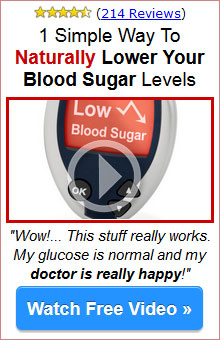Hypoglycemia (Low Blood Sugar)
Hypoglycemia occurring when blood glucose levels drop too low. Hypoglycemia is also called insulin reaction or insulin shock.
Why Hypoglycemia Occurs
Controlling blood sugar is no easy task for people with diabetes. Many factors can upset the balance, including illness, stress, medications other than insulin, and alcohol. If the balance is upset-for example, by too much exercise or too little food-the result is an insulin reaction from too much insulin circulating in the bloodstream. Hypoglycemia occurs more commonly with insulin therapy, but it can also happen with some oral medications.
Hypoglycemia Can Happen Easily and Quickly
An insulin reaction can come on at any time and with surprising suddenness. You, your friends and family, and those who work with you should know how to recognize and treat low blood sugar. Be prepared to stop what you're doing immediately and treat your low blood sugar if you experience any of the symptoms in the following chart.
Warning Signs of Low Blood Sugar:
• Headache
• Sweating
• Pale, moist skin
• Cold and clammy
• Extreme/sudden hunger
• Weakness/Dizziness
• Shakiness
• Fatigue/tiredness
• Rapid pulse rate
• Blurred/double vision
• Shallow breathing
• Confusion/inattention
• Loss of coordination
• Seizure
• Loss of consciousness
• Symptoms that require emergency medical intervention
Treatment For Low Blood Sugar-Your Body Needs Sugar, and Fast Mild Insulin Reaction:
Check your blood sugar, if you are able. If your blood sugar is below 4.0, quickly eat a source of sugar. Common remedies include the following:
• 2-4 glucose tablets or glucose gel
• 6 oz. of soda (non-diet)
• 4-6 oz. of fruit juice
Any fast-acting sugar will do. You will soon learn from experience what works best for you. You should always carry some kind of sugar with you so that you can take care of yourself even if no food is readily available.
If possible, avoid using foods like cake, cookies, pie, ice cream, and chocolate, which have high fat content and therefore relieve hypoglycemia relatively slowly. Because the response time from such foods is slow, people tend to overeat them. Such overeating produces prolonged high blood sugar levels later.
Also, try to avoid overtreatment, which could produce longer high blood sugar levels. Once you've taken some sugar, you should rest for 10 to 15 minutes to let your body absorb it. 15 minutes after the treatment retest. If your results are the same , repeat the treatment. If your blood sugar is lower, repeat with higher amount of sugar (double), or call for assistance.
Important: If you have not improved in 30 minutes, call for assistance.

Severe Insulin Reaction
If a person is unable to take food or drink, but is still conscious, instant glucose gel, cake icing in a tube, jam, or syrup can be rubbed between the teeth and the cheek so it can be absorbed without risk of choking. Glucagon may also be given (see below).
When the symptoms have subsided, in order to prevent another reaction, eat something that takes longer to digest. Drink some milk or eat a peanut butter or meat sandwich.
If Unconscious
If unconscious, nothing should be given by mouth. Glucagon, a prescription drug taken by injection, causes blood sugar levels to rise by prompting the liver to release stored glucose. If glucagon is not available, call an ambulance or emergency medical unit. Get the person under supervised care immediately.
Instructions for using glucagon are provided with the product. It is a safe drug, with no danger of overdose. Because occasionally it may cause nausea and vomiting, the person should be lying on his or her side to prevent choking. If the person does not respond fairly quickly, another dose may be administered. When he or she awakens, some form of fast-acting carbohydrates should be eaten right away. The doctor should be notified if a person experiences this type of extreme hypoglycemic reaction.
If there is no response to glucagon, call an ambulance or take the person to the hospital immediately.

The information provided here is not intended to take the place of medical advice. For guidance on topics discussed, consult your health care professional.
Source: Juvenile Diabetes Research Foundation; 7100 Woodbine Ave., Suite 311; Markham, Ontario; L3R 5J2
Freebies & Discount Codes
Find out freebies and coupons for savings on health products available on the Web











